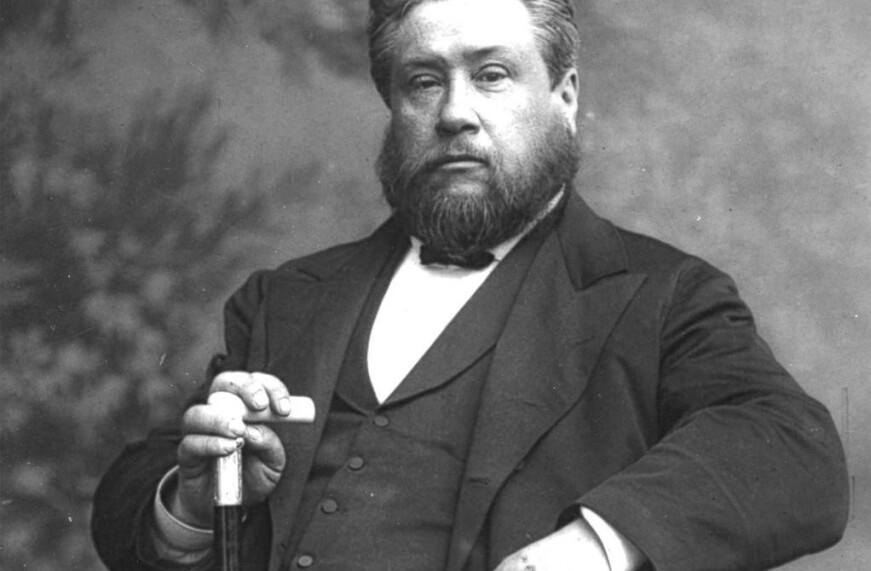Spurgeon the Church Planter

Charles Spurgeon (1834-92) was the "Prince of Preachers." He was without question the greatest preacher in England during the Victorian Era, and arguably the greatest preacher in the world since the Protestant Reformation. Spurgeon preached regularly to crowds of thousands of eager listeners, both in his own church in London and all over the U.K. He preached weekly to roughly 6,000 people at the Metropolitan Tabernacle, and once preached to a crowd numbering nearly 25,000. It has been said that the only thing more impressive than Spurgeon’s ability to attract such massive crowds was his ability to hold them for nearly 38 years of ministry in London. Spurgeon was no flash in the pan. He was perhaps the most consistently faithful and fruitful minister England has ever seen.
Much has been said about Spurgeon the preacher, but a lesser-known man is Spurgeon the church planter. Over the course of his life Spurgeon planted over 200 new churches in Britain alone. Through his famous Pastor’s College, he oversaw the ministerial training of no less than 900 men during his lifetime. Though many of these men took up pastorates in established churches, a large number of them were sent out as church planters and missionaries all over England and around the world.
Spurgeon’s vigorous commitment to church planting was born out of strongly held convictions about the preaching of the gospel, the nature of the church’s mission, and the vast needs of the world. In an April, 1865 issue of his monthly magazine, The Sword and the Trowel, Spurgeon wrote,
“The Christian church was designed from the first to be aggressive. It was not intended to remain stationary at any period, but to advance onward until its boundaries became commensurate with those of the world. It was to spread from Jerusalem to all Judaea, from Judaea to Samaria, and from Samaria unto the uttermost parts of the earth. It was not intended to radiate from one central point only, but to form numerous centers from which its influence might spread to the surrounding parts.”
Spurgeon believed that the church is, by its very nature, an “aggressive” entity. He argued that it is never to be static, but should always be advancing. He understood the church to be not principally a maintenance project, but an energetic and dynamic force for the spread of the gospel.
This mindset formed the D.N.A. of Spurgeon’s own church. At the laying of the foundation stone of the Metropolitan Tabernacle on August 16, 1859, Spurgeon addressed the gathered crowd who had attended this historic ceremony in the life of the church,
“I look on the Tabernacle as only the beginning; within the last six months, we have started two churches—one in Wandsworth and the other Greenwich—and the Lord has prospered them; the pool of baptism has often been stirred with converts. And what we have done in two places, I am about to do in a third, and we will do it, not for the third or the fourth, but for the hundredth time, God being our Helper. I am sure I may make the strongest appeal to my brethren, because we do not mean to build this Tabernacle as our nest, and then to be idle. We must go from strength to strength, and be a missionary church, and never rest until, not only this neighborhood, but our country, of which it is said some parts are as dark as India, shall have been enlightened with the Gospel.”
The two churches that Spurgeon mentioned in this quote, Wandsworth and Greenwich, were only about five miles from Spurgeon’s own church. He planted these churches recognizing that they may very well siphon off some of his own attendance.
Yet losing some of his own members to forward the cause of church planting was never an issue for Spurgeon. In fact, his usual method of church planting involved the gathering together of small teams from among the membership of the Metropolitan Tabernacle and sending them out to plant churches. Sometimes these teams were sent to needy areas of London, and sometimes they were sent to other parts of the country that were desperately in need of healthy churches. In Arnold Dallimore’s biography of Spurgeon, he wrote,
“During his career he frequently arranged to have a group of members leave the Tabernacle to start a new church, and often one of the prominent men of the Tabernacle went with them to provide leadership.”
Spurgeon himself said in an April, 1865 sermon,
“We have never sought to hinder the uprising of other churches from our midst or in our neighborhood. It is with cheerfulness that we dismiss our twelves, our twenties, our fifties, to form other churches. We encourage our members to leave us to found other churches; nay, we seek to persuade them to do it. We ask them to scatter throughout the land to become the goodly seed which God shall bless. I believe that so long as we do this we shall prosper.”
Spurgeon holds out to Christians today the vision of “a missionary church.” With intense zeal for the lost and a robust confidence in Christ’s promise to build His church, Spurgeon stepped out in faith and led one of the greatest church planting campaigns England has ever known. To this day, there are scores of churches in London and all over the U.K. that can trace their origins back to the church planting efforts of C.H Spurgeon. His call to churches today is to “advance onward” in the vital and necessary work of church planting.

